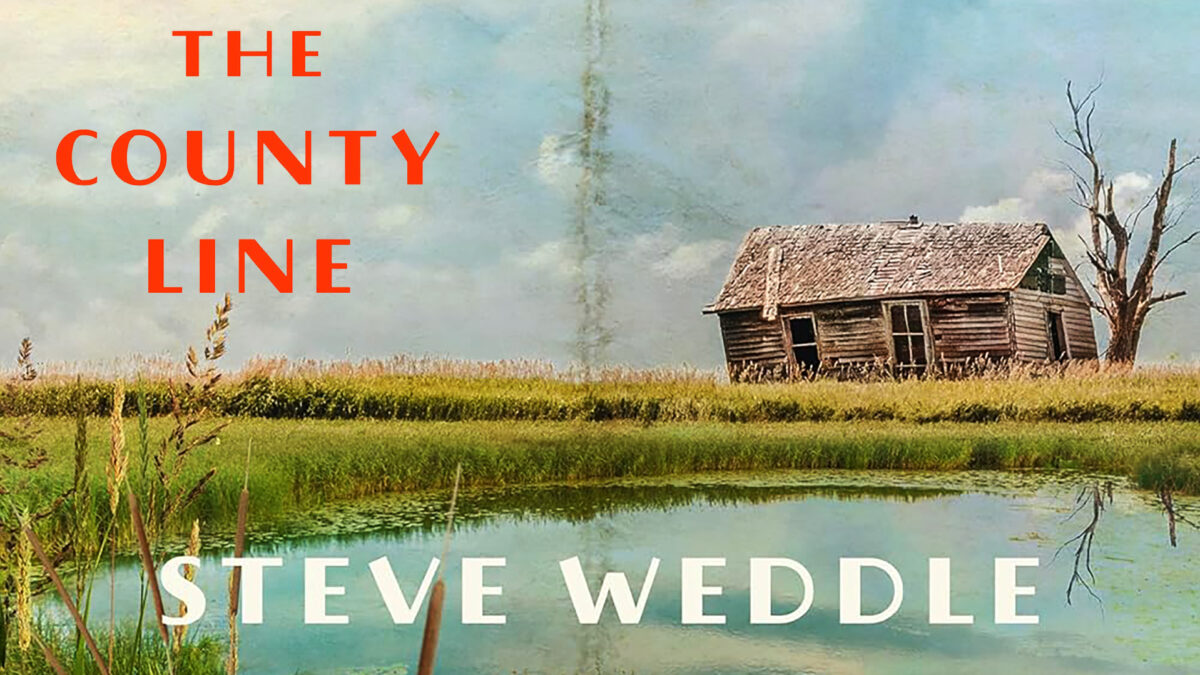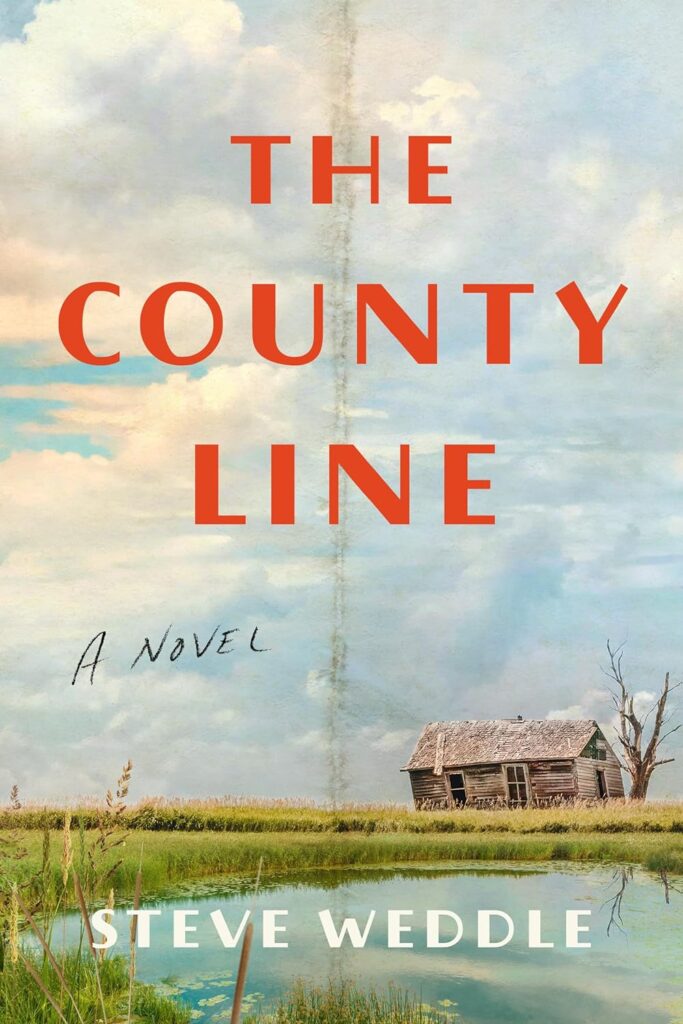The County Line
by Steve Weddle
Review by Lee Horsley
Steve Weddle’s The County Line (2024) is a big-hearted, wholly engrossing tale of thievery, betrayal and murder in the early years of the Great Depression. In the summer of 1933, Cottonmouth Tomlin returns home to a small town in southwest Arkansas just over the Louisiana border, after adventuring first to New Orleans and then to Central America. Leaving for Honduras, he’d had “a change of clothes and hope in the future. He’d come back with just a change of clothes. Better clothes, it was true, but not by much.”
Cottonmouth has returned for his uncle’s funeral, having been left an outlaw camp, “a scattering of cabins and an impassable road,” with a reputation for unsavoury goings-on. It is a useful place to hide kidnap victims or small-time outlaws on the run. As Cottonmouth gradually realises, however, his dilapidated camp is also a place that more powerful crooks might scheme to make their own. The County Line gives us a wonderful gallery of affectionately created ne’er-do-wells struggling to get by, hoping, after a drink or two, that they might, if luck is with them, knock over a bank with their four guns and seven bullets. Higher up the social scale, there are the formidably respectable but even more criminally inclined old sisters, Henrietta and Abigail Rudd – more than a match for any of the men in the town. And, eyeing the deficiencies of this local criminal hierarchy, there is the wholly untrustworthy interloper, Martello, who owns clubs in neighbouring Louisiana and “runs the whole corner of the state” – a man to both emulate and fear.
Caught between dangerous adversaries, Cottonmouth considers whether he could work with the well-heeled Martello, maybe welcome him as a guest and go over some ground rules with him: “That had been the plan, hadn’t it? Bring Martello in; bring in business.” But as he carries forward his underhanded schemes, Martello tells Cottonmouth, “Look around. This is my camp now. My men. Possession is nine-tenths of the law.” For Martello, it isn’t “about the history of the place” but about the future of a place he intends to shape and control. For Cottonmouth, on the other hand, it is home. There is continuity and a sense of belonging imparted by land his family has owned for nearly a hundred years: “I’ll take family and community over Hessian soldiers any day”.
The County Line is a lively, humorous and above all compassionate story of lives worn down by the grinding years of the Great Depression, and of the choices forced by desperation. As Cottonmouth ponders his direction in life, he reflects, “Head back home from Honduras, and the next thing you know, you’re running a kidnapping ring out of your family’s hunting camp. What a world, he thought. What a world. —“



